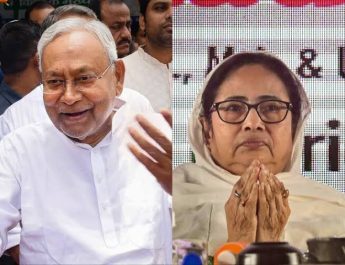A NEWS ANALYSIS/From Our Bureau
NEW DELHI: The final outcome in the G20 summit declaration irked Ukraine, which saw the compromise on war language as weaker than what leaders produced just 10 months ago in Bali, Indonesia. But for the US and its allies, criticism of a communique that on substance was similar to Bali and has little impact on the ground is a small price to pay for giving Modi a win that bolsters India’s status as a rising power capable of blunting China’s global influence.
Xi Jinping’s decision to stay away from this weekend’s Group of 20 summit may have been intended to deny India its moment. Instead, Prime Minister Narendra Modi — along with the US and Europe — figured out how to more effectively counter China on the world stage.
Modi also neutralised Russia by not mentioning it in the declaration while offering it the option to invest billions in rupees it has accumulated for exports, its foreign minister Segei Lavrov said here on Sunday.
“Our Indian friends said they would propose promising areas they can be invested in,” Lavrov told reporters, citing talks with Indian counterpart Subrahmanyam Jaishankar in Jakarta, Indonesia, on the sidelines of the East Asia summit prior to his arrival to India. “Right now our governments are talking how to use and invest them to mutual benefit.”
He didn’t provide further details.
Fellow G-20 nations hailed India’s success in reaching agreement on a joint communique that remained in doubt just days before world leaders gathered for their most significant annual diplomatic event. Apart from finding consensus on Russia’s war in Ukraine, the most difficult issue. It bolsters India’s status as a rising power capable of blunting China’s global influence.
President Joe Biden led the charge, seeing in India his administration’s best hope of isolating China and Russia — and providing a booster shot to the US—led world order. The result showed that Washington is finally learning the language of the so-called Global South, with India as its principle guide.
Along with World Bank President Ajay Banga, the first Indian American to hold the role, Biden was pictured with Modi, Brazil’s Luiz Inacio Lula da Silva and Cyril Ramaphosa of South Africa — key members of the BRICS grouping, minus China and Russia. That bloc expanded earlier this month, posing a challenge for the Group of Seven advanced economies.
The US separately announced a deal with India, the European Union, Saudi Arabia, Israel and other Middle Eastern countries to develop an ambitious rail and maritime network across the region. Biden hailed it as a “game-changing regional investment,” cementing the deal with a three-way handshake that included Modi and Crown Prince Mohammed bin Salman, who the US president had cast as a “pariah” ahead of the last election.
That kind of pronouncement is certainly more likely to appeal to Middle East interests than badgering over human rights, even though the project’s time line and funding remains vague.
Xi’s move to skip the G-20 summit for the first time since he became president in 2013 marked a shift in behavior from last November, when he cast himself as a statesman with a responsibility to “get along with other countries.” China’s negotiators also risked appearing petty in looking to thwart India’s progress, taking a stand on minor issues like Modi’s use of a Sanskrit phrase and the US’s bid to host the G-20 gathering in 2026. The Global Times, a newspaper affiliated with the Communist Party, called the US “just a copycat” for its Mideast infrastructure plan.
Premier Li Qiang, representing China in Xi’s absence, told leaders that the G-20 “needs unity instead of division, cooperation instead of confrontation,” the official Xinhua News Agency reported. That followed a commentary posted hours earlier by a Chinese think tank affiliated with the country’s top spy agency, which criticized India for having “sabotaged the atmosphere for cooperation” at the G-20 by pushing its own agenda.
But China relented on its opposition to the communique, and India drew praise from all camps for negotiating a compromise. People familiar with the discussions said the breakthrough occurred after India, Indonesia, Brazil and South Africa jointly put forward a proposal on language describing the war.
For the US, any move that bolsters India and amplifies other democracies in the Global South helps to counter China and Russia’s influence, particularly when it comes to bringing about the G-20’s call for a “comprehensive, just and durable peace” in Ukraine. Back in May at the G-7 summit in Japan, the US and its allies struggled to convince Modi, Lula and Indonesia’s Joko Widodo to side with them on Ukraine, even after President Volodymyr Zelenskiy made a surprise appearance. Zelenskiy wasn’t invited to address G20 in Delhi.
###





